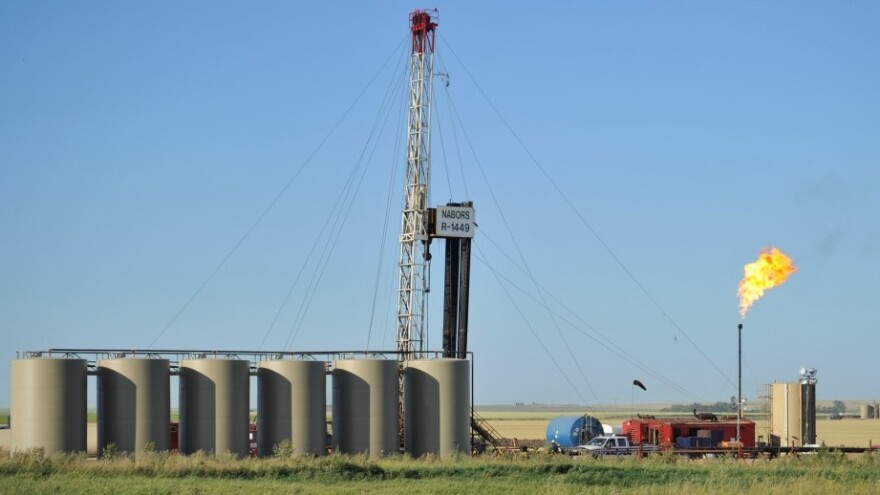Since President Obama took office, the U.S. has made considerable progress in overcoming a problem that has bedeviled presidents since Richard Nixon — dependence on foreign oil.
When U.S. oil dependence peaked at 60 percent in 2005, then-President George W. Bush said the country had a serious problem and was "addicted to oil."
Oil imports were down to 49 percent in 2010, and the Energy Information Agency predicted Tuesday that imports would drop to 36 percent by 2035.
"Reliance on imported petroleum we expect to decline dramatically over the next 20 years," says Howard Gruenspecht, acting administrator of the Energy Information Agency.
This reflects in part the fact that after decades of decline, U.S. oil production started posting gains in recent years. The Energy Information Agency predicted the increase will continue, and by 2020, the oil production rate would be up 11 percent to 6.7 million barrels per day.
"That's really reversing a long slide," says Gruenspecht.
Criticism For Blocking U.S. Production
Ironically, this breakthrough is happening during the administration of a president who has been steadily criticized for blocking domestic petroleum production. Republicans have attacked him for slowing off-shore drilling in the Gulf of Mexico after the BP spill and for deciding not to open some federal lands in the West to oil and gas development.
But energy experts make it clear that regardless of the criticism, a positive trend is underway that should change the way the county thinks of itself and its relationship with unfriendly, oil-rich nations.
"We have a complete change in the historic view that we are helplessly dependent on energy imports, oil imports going forward," says John Deutch, a Massachusetts Institute of Technology chemistry professor and former CIA chief who advises the Obama administration on energy.
Deutch says the situation is even brighter than it seems, because Canada could supply most of U.S. oil imports in the future.
We have a complete change in the historic view that we are helplessly dependent on energy imports, oil imports going forward.
"I frankly find Canadians as reliable as Californians [in] providing us with energy, so you should not include the Canadians in that import dependence," Deutch says.
Expansion On Private Lands
Oil industry executives agree that the outlook is rosy.
"Past assumptions of oil and gas scarcity that went into business strategic plans, governmental policies and public attitudes are out of date," says James Mulva, chairman and CEO of ConocoPhillips. "The major production trends have certainly been reversed."
The breakthrough comes as oil companies are using hydraulic fracturing, or fracking, to blast open the rock that contains the oil.
According to Mulva, more rigs are drilling for oil in the United States today than have been for 25 years.
But here is where the criticism of President Obama comes in: Mulva stresses that most of these rigs are on private property. They are drilling into places like the Bakken formation, which lies under parts of North Dakota and Montana.
"Had this been government land, we would likely still be awaiting drilling permits or fighting lawsuits from NGOs or outright drilling bans enacted from Congress," Mulva says.
Using Less Fuel
Still, increasing U.S. oil production is only one reason that reliance on foreign oil is waning.
Another is that Americans are using less fuel.
The Energy Information Agency says overall U.S. oil consumption has declined since 2005. The agency predicts it will grow only very slowly over the next two decades, because of policies that boost the fuel efficiency of cars and increase the use of renewable fuels like ethanol.
President Obama deserves credit for those policies. So does his predecessor, President Bush.
The EIA's Gruenspecht says America's dependency on foreign oil will ease even more than the agency's forecasts suggest if Obama goes forward with his proposal to further tighten fuel economy in cars for model years 2017 to 2025.
Copyright 2021 NPR. To see more, visit https://www.npr.org.



